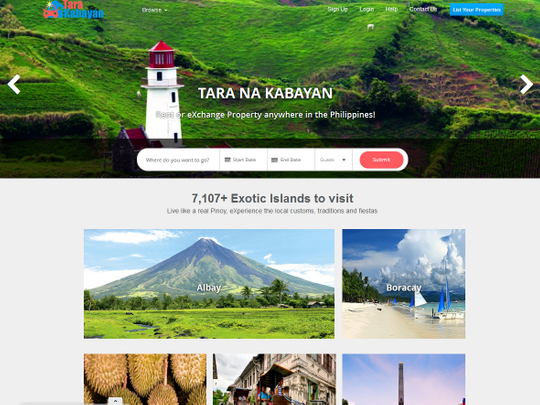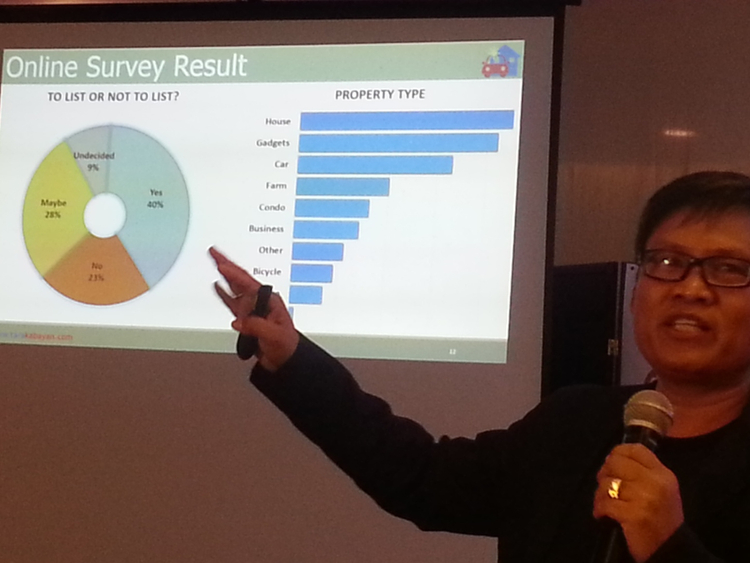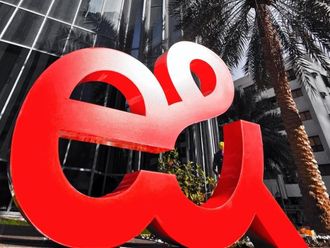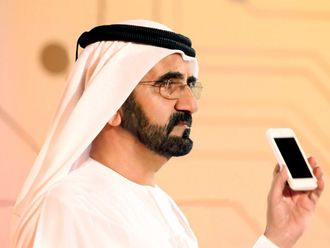
Dubai: The sharing economy just got another boost through a Dubai-based Filipino start-up.
The web platform seeks to capitalise on the huge number of idle expat-owned properties in the Philippines and makes the opportunity to buy and sell more inclusive.
The site, tarakabayan.com, (Tagalog for "come, fellow countryman") allows everything from a small “bahay kubo” (nipa hut), a car or apartment unit to a beach-front property or a boat and a farm to be shared by anyone anywhere in the world.
Launched on Saturday at Bur Juman Mall's Barrio Fiesta, proponents aim to cash in on "collaborative consumption", fuelled by social media and online payments.
Dennis Belgrado, founder and CEO of tarakabayan, worked for a Silicon Valley company that produces high-accuracy global navigation systems.
Their choice of Dubai as launchpad instead of Manila, he said, is because of the generally greater ease of doing business here. But moreso is Dubai's links to world-class application development pool.
Tarakabayan apps, though still in "beta" versions, are now also available for download on both iOS and Adroid mobile platforms, he said.
Business-friendly
“Definitely, we are encouraged by the business ‘ecosystem’ Dubai has for tech entrepreneurs,” said Belgrado. “The fact that it is so much easier to open up a business in Dubai is a big factor (in setting up shop here). It only took us couple of weeks to legitimise our company in the free zone.”
“I've been in Dubai for the last 15 years and I’ve found it to be a great incubator of business ideas,” said Belgrado, who hails from Bicol, south of Manila.
He added they grabbed the opportunity posed by the growing trend of overseas Filipinos who own property -- house, equipment, boat, recreation gear -- back home that are unused for most of the year.
The “sharing economy”, with 2015 estimated revenues of $15 billion, is set to balloon into a $325 billion industry by 2025.
Tarakabayan's business is based on resource sharing – both on the low-end and the high-end of the market.
During the 2013 Rio World Youth Day, thousands of young visitors slept on tents or on the streets. During the 2014 World Cup, more than 100,000 people used home-sharing web sites to find a bed in Brazil, a country that faces chronic hotel room shortage.
Meanwhile, certain jurisdictions have seen the benefits of a sharing economy. Manila, which has a weak transport network, has allowed ride-sharing services like Uber, GrabTaxi, Tripda and EasyTaxi from May 2015 to compete with taxi monopolies. This follows the example of Seattle which has deregulated its transportation and hospitality sectors.
Expats
Belgrado cited there are an estimated 10 million Filipino expats. Tens of thousands of them had invested in property in the Philippines left idle for most of the year due to lack of access to marketing as well as facilities management outfits.
There's also a growing number of non-Filipinos who bought property in the Philippines who are not professional real estate investors and are in the margins of the rental market.
Dennis Belgrado, tarakabayan CEO, said: "We ran a survey as part of our feasibility study and it showed 40 per cent of the respondents were willing to let strangers stay in their property."
So here's the deal: Say, an expat Filipino has a house, a car, even a couch, to share -- or rent out to someone else in another part of the country or the world, then details can be listed on the site. When a deal is completed, they get a commission.
How did they incubate the idea behind this platform?
Motivator
“The biggest motivator for us," he said, "is to be able to help our fellow overseas Filipinos to get additional income from the properties they already own back home so they don't have to rely solely on their salary.
“It was our passion for entrepreneurship -- financial literacy, IT and the Leadership for Social Entrepreneurship (LSE) course -- that brought us together,” said Belgrado.
LSE is a learning programme for Filipino expats spearheaded by Jesuit-run Ateneo de Manila University.
At the end of a six-month class, a panel of judges cited Belgrado's group for having a winning plan. The group also bagged a Php50,000 (about Dh5,000) start-up grant.
The company is currently in the process of setting up shop in Manila following registration with the Securities and Exchange Commission (SEC), he said.
The platform is not strictly a listing site as it is also linked to Paypal's payment gateway. The site is also signing up with DragonPay, which allows over-the-counter-payment at Bayad (Pay) Centers at SM and Robinsons, the Philippines' biggest mall operators.
But while listing is for free, and Belgrado reckons they will get greater traction as more people list , the platform will make money from commissions when payments or rental trades are done.
“The revenue will come from commissions charged to both the host and the guest upon successful transaction,” he said.
What is sharing economy?
While sharing goods has always been a common practice among friends, family and neighbours, in recent years, the sharing has moved from a small geographical community practice into a profitable business model.
This increasing legitimacy is reflected in the more polished terms used to describe the phenomenon like peer-to-peer (P2P) networks or the "access economy".












